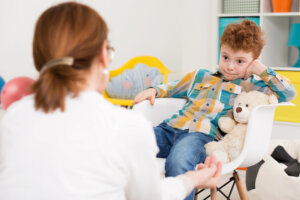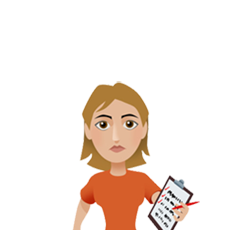How To Help ADHD Kids Get Started on Tasks
Clean your room. Do your homework. Bake a quiche. For the ADHD kid, this is much easier said than done! Deficits in executive function (the mental processes that deal with organization and self-regulation) make it difficult to get started and figure out how to get from step A to step B. When it’s time for your children to tackle chores, homework, and other tasks that may be easy or automatic for typical kids, how can you help accommodate for neurobiology and level the playing field? Download a free tipsheet "The Parent's Guide to Motivating Your Complex Kid" to help your child find the motivation to do... anything and everything! Dr. Thomas Brown, a leading ADHD researcher at Yale University, refers to executive functions as the “cognitive management system of the brain.” One of the functions that ADHD affects is activation, which involves organizing tasks and materials, prioritizing, estimating time, and starting activities. Let’s say that you have to clean your house. If you have ADHD, it’s difficult to get going. Your mind starts whirling around the many small steps you’ll have to take to accomplish your goal. Vacuuming, mopping, dusting, cleaning the counters…. it quickly becomes overwhelming. The task of cleaning your house is simply too big. It’s too much. Because you do need to clean your house – at least occasionally! – you can put a system and structure in place to help overcome your executive function deficit. This could be as simple as making a list of the rooms or areas that need attention. Instead of the amorphous, “Clean the House,” you would itemize: vacuum carpets, wipe off bathroom counters, clean toilets. These are very specific, and they are manageable. Then you might identify a starting place and time to help with activation. It’s the same with kids. If you know your child has a hard time getting up in the morning and completing all of the tasks to get out to the bus on time, make a checklist together. List what needs to be done explicitly and clearly: brush teeth, get dressed, eat breakfast, put shoes on, pick up backpack. You can even make a little song out of it for younger kids. It sounds like they should know that, right? Like they should be able to just get up and do it. But that’s not how ADHD works. The brain is not providing the support with regulation and organization that typical kids get, so you have to help by putting it in place for and with them. As they get older, the systems and structures will change to foster more independence. So, you have your morning checklist. When your child is young, you might list the tasks on a whiteboard, and offer the satisfaction of crossing them off. As your child gets older, eventually s/he’ll memorize and internalize the list. As an adult, leaving for work, a little mnemonic might help, like, “Keys, cellphone, jacket, shoes.” At this point, it’s a verbal reminder, a structure that jogs the memory of all the steps needed to get out the door. These systems and structures – whether checklists, timers, or apps that helps you keep track of appointments – accommodate for the difficulty in activating, or starting. They’re lifelong tools that your child will take into adulthood to compensate for deficits in executive function. That doesn’t mean she’ll be thrilled to do chores or tasks! But she will be better equipped to tackle them. Download a free tipsheet "The Parent's Guide to Motivating Your Complex Kid" to help your child find the motivation to do... anything and everything!
Why Won’t They Do What I Ask?
Article continues below...
Want to Motivate Kids?
Activation
Adapting to Change
Want to Motivate Kids?


